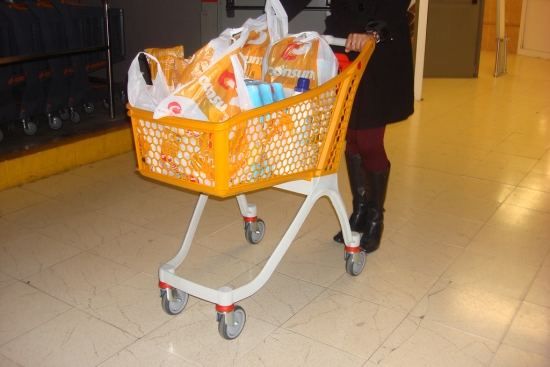In recent years, the Government has become more and more set on meeting environmental targets in all areas of consumer and business life. This has had a massive impact upon businesses, with many now having to examine their options regarding the day to day running of both their operations and their commercial properties – most now, for example, fit energy saving light bulbs in their offices and some even utilise solar panels and rainwater recycling units to demonstrate their dedication to the environment.

However, it is fair to say that supermarkets have faced the biggest challenges when attempting to become more eco-friendly as they have to consider both their premises and customers’ environmentally impacting actions. As a result, food recycling, biodegradable packaging and bags for life have become common features of the UK’s largest supermarkets.
Yet experts are now warning that plastic bag recycling could have a severe impact upon the health of the nation’s consumers, something they only expect to get worse as a 5p plastic bag tax is introduced in England in 2015. Scottish retailers will introduce the scheme a year earlier, while the initiative is already running in Wales and Northern Ireland and has been for some time.
Emeritus professor of bacteriology at Aberdeen University, Hugh Pennington, warns that consumers failing to properly clean used plastic bags could put themselves at risk of developing food poisoning.
He says; “We have to be careful about being too strict in forcing people to re-use bags – there are some bags you should only use once, so I would be very unhappy at having a 5 pence charge on bags that are being used for food.
“Any bag that’s carrying meat, wrapped or unwrapped, shouldn’t be used again.
“I would be very surprised if many people washed bags and even if they do they won’t necessarily get rid of all the bugs: the bag may look clean but you can still easily find these bugs.”
These claims were backed up by an experiment conducted by analysts at Glasgow Caledonian University’s School of Health and Life Sciences, where one square centimetre of both cloth and plastic reusable bags were tested for bacteria. Four of the nine bags tested were deemed “heavily contaminated”, indicating that food poisoning is a real possibility.
Professor Kofi Aidoo, a bacterial toxins and food-borne diseases expert, points out that even those who only eat a small amount of meat could be putting themselves at risk as vegetables and fruit will come into contact with bacteria on the inside of shopping bags. Furthermore, he is concerned that consumers fail to store reusable bags in a way which discourages the spread of bacteria – in the boot of their cars, for example.
He says; “The warm environment of cars make them the worst place as far as bacteria is concerned.
“One bacteria cell will quickly become thousands.
“If people are going to have to pay for bags and re-use them my concern is we’re creating a high risk of food poisoning.”
Do you think supermarkets should have to provide bag recycling points, perhaps whereby consumers receive a token or 5 pence for each bag disposed of safely, in a bid to cut the risk of food-based illnesses?